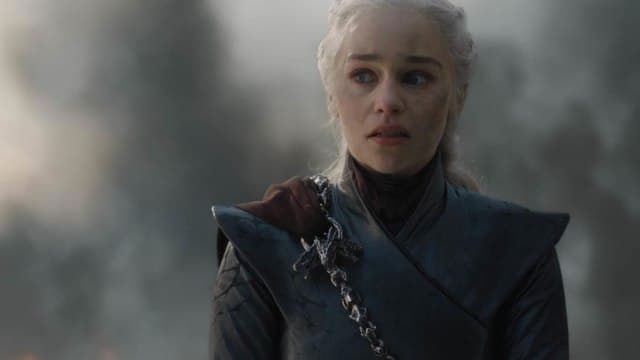Men howl and stamp around a roaring fire, dragging animal cries up from deep within their bellies. A son and his father snarl and snap at one another on all fours in a secret burrow deep under the earth, then lap hallucinogenic water from bowls laid out by a masked mystic. The Northman’s immersive approach to Norse culture and religion is its most intriguing element, plunging viewers into a world of animism, mushroom-fueled visions, and cultural mores as alien as anything H. R. Giger ever dreamed into being. From the exiled prince Amleth’s (Alexander Skarsgård) fatalist growling about destiny and doom, the interweaving of prophecy and the arcane with the quotidian world, director Robert Eggers conjures up a singularly immersive historical epic, one concerned not with finding a way to speak to us about our present, but in resurrecting the voice of a dead world to sing its own strange song.
Eggers’ decision to rely heavily on exaggerated physical acting pays strong dividends, especially in The Northman’s near-perfect battle scenes. Marie-Gabrielle Rotie’s chaotic but immediately legible choreography and Paul Philip Clark’s fight coaching combine to create some of the most harrowing and deeply unpleasant battle sequences in recent cinematic memory, the camera prowling through streets heaped with hacked and violated corpses as men tear each other apart and heave women and children over their shoulders for sale as chattel, or for a celebratory rape. In a chilling sequence in which Amleth crosses blades with an undead draugr (Ian Whyte), Eggers anchors the camera first to Amleth, then to the towering creature, and finally cuts it loose to revolve around the burial mound as the two combatants batter mercilessly at one another.

Love and War
The film’s weakest element is undoubtedly the romance between Amleth and the sorceress Olga (Anya Taylor-Joy), a woman from the land of the Rus, which seems to draw out the worst instincts in both Skarsgård as a performer and Eggers as a director. During the pair’s escape from Iceland the tone and look of the film shifts drastically, grimy roughspun replaced by woolens that wouldn’t look out of place in a Williams-Sonoma catalog, soft, low-affect admissions of feeling shouldering their way in past the extreme emotions and psycho-social performances of the film’s first two acts. The immersive nature of the film falters, losing its edge to a species of sentimentality lamentable not for its softness — Viking history and mythology are full of manly weeping, recitation of poetry, and star-crossed declarations of devotion — but for its blandness. That Eggers sets up a fascinating parallel between Olga’s status as a slave and Amleth’s own mother, queen Gudrún (Nicole Kidman), and then fails to dig into it only serves to compound the error.
Once the romance reaches its zenith, the film loses its energy — a difficult proposition, considering what comes next is a naked sword fight on the slopes of a volcano — until a truly astonishing final shot. The clean camera work and painterly framing which characterize The Northman’s more grounded action sequences gives way to a jumbled, CGI-heavy onslaught of hard to parse cuts as Amleth duels his uncle Fjölnir (Claes Bang) among sulfurous fumes and rivulets of glowing magma. The rough, believably physicality of the assault on the Rus town in act one can’t survive under such inhospitable conditions, and what might have been either jaw-droppingly epic or else pitifully squalid instead feels merely underwhelmin. The Northman shines in its brutal, kinetic, and warmly humorous depictions of Viking life and belief, but its staid romance and unwillingness to pick at its most horrific elements hold it back from real greatness.

